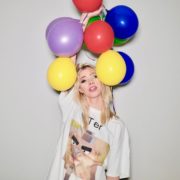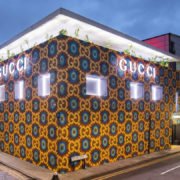BLUEM talks debut album ‘NOTTE’, Sardinian heritage, and more
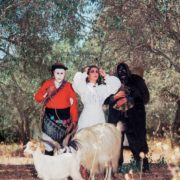
Words By: Andrea Susarrey
NOTTE is a project borne out of deeply personal inspirations alongside some bold thought to push the creative process.
BLUEM aka Chiara Floris, is an Italian, specifically Sardinian, musician based in London. Earlier this year she released her debut album, NOTTE, an intriguingly intimate and melodic project layered with lifted choruses, intimate voice overs, and all tied together with synths. She made the entire project from start to finish in a week and correspondingly each of the songs is titled after one of the days in the week.
The Sardinian artist delivered an album that takes us to a specific moment in her life, each song unravelling more layers and adding depth to what has come previously. NOTTE hints at an esoteric, traditional Sardinian background mixed with the influences of experimental R&B and electronic music, all specific to Chiara herself.
I had the pleasure of interviewing her and finding out more about NOTTE, which follows below.
Tell me about NOTTE.
A year before making this album in 2019, I had this idea to do a project on SoundCloud, inspired by Tierra Whack’s 1 min song project. I kind of left it, but It was still such a good exercise for me, and for NOTTE to have been possible. Just before January, I went to an astrologist and had such an incredible reading, the kind of reading that was entirely too specific and real. It really encouraged me to continue the project, and go fully into it.
Very soon after that, I did the whole thing [NOTTE] start to finish in a week. I wrote it back in January of 2020 – the idea was to make one song a day, so when I decided to do the album I just went all the way in with this mentality. A friend of mine, Simone D’Avenia helped me finish the production. He’s my fresh ear when I become numb to my music after listening to it for so long, he helps me go back in with fresh eyes.
The visuals for the project are very strong, tell me a bit more about them.
When I started to produce the songs, I began to think about the visuals as well. In everything I do, I think of visual synchronization – for me, the image and the music are strictly connected. I was nostalgic for Sardinia at the time, so the visual side of the project was created in this mindset. I had actually drawn out every picture almost exactly 1 year before taking them.
There’s the song, “Venerdi”, which is a voice over of my grandmother speaking, that I took from a documentary my sister had made on Sardinia. I feel like that song is the musical connection to the visuals. Other than that, while I was making NOTTE I wasn’t really thinking about Sardinia, or I should say it’s not explicitly about it. I didn’t have it in mind, and I didn’t approach it with the proper research behind it to say it’s about Sardinia. It does have tiny tributes like percussion wise, and I have been influenced by the choral parts – the chorus is typical Sardinian, but that’s just in me. I only thought of Sardinia directly for the visuals, not necessarily the music.
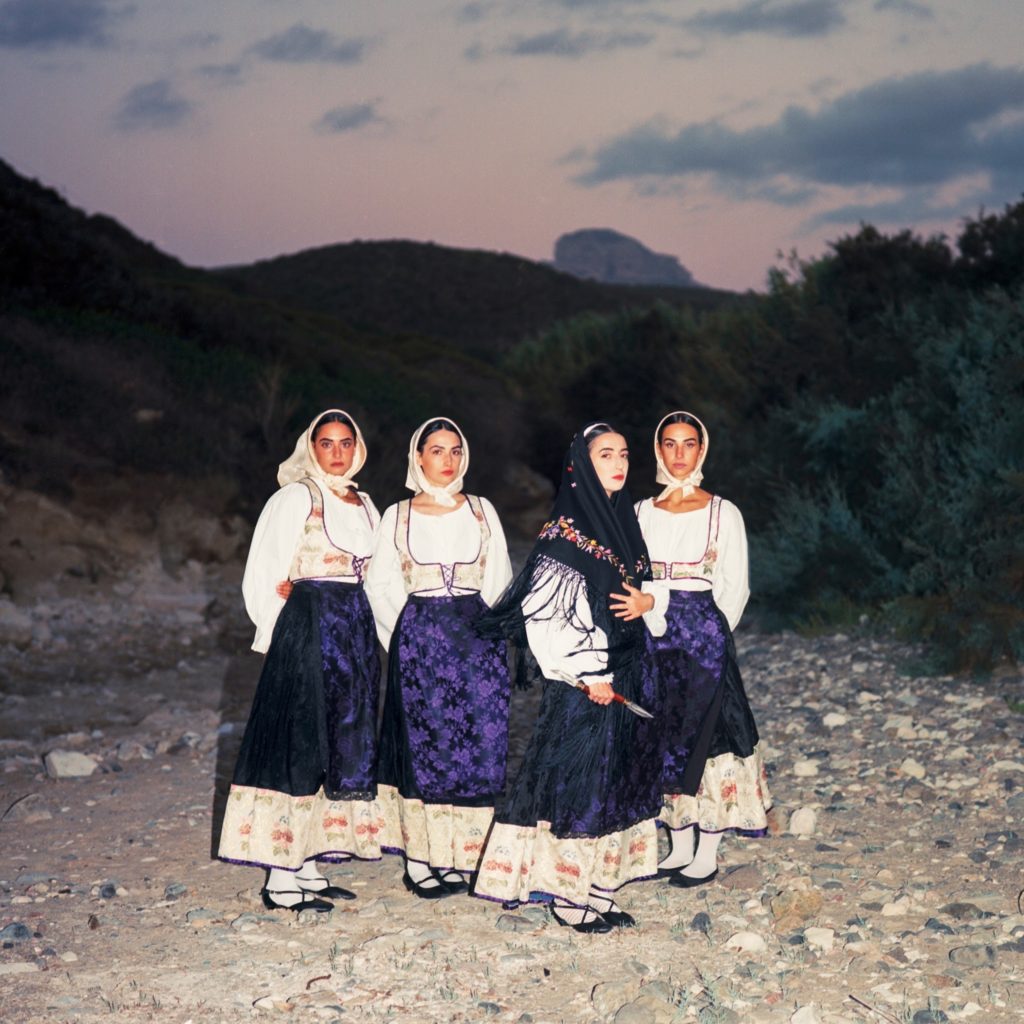
How did Sardinian tradition and mythology influence you?
I love the symbology of the moon, in esoteric practices and archetypes, it’s associated with femininity. Sardinia is very matriarchal, so I grew up with the women’s position being very dominant and prominent. I don’t think it’s the same for the rest of Italy, but there’s a very matriarchal inclination in Sardinia. I only realized it wasn’t like this everywhere when I started travelling when I got older. There’s also a huge history of witches in the culture, women are feared but respected. When I think about the main figures of my life, my grandmothers always have the strongest personality and the most power in my family. I see this lineage in my mother and in myself.
How has living in London changed your idea of home? Has distance/nostalgia given you a certain freedom to curate your idea of it?
Definitely, I could never have done a project about Sardinia without being far from it. It gave me the space and time to appreciate so many things I couldn’t have otherwise. It’s risky to bring tradition to a modern project. Sardinian people are really proud and to do something in the name of that tradition and it not come out right would have been terrible. I just wanted to do something true to myself, I only used things strictly personal to me, thank god no one was offended [she laughs].
What were you listening to at the time of making it?
El Mal Querer by Rosalía, I found out about it later than it actually came out. But before I heard it I was already thinking about making something traditional, and when I listened to it, it gave me the confidence to know it can be done. Besides that Brol by Angèle and FKA Twigs’s MAGDALENE
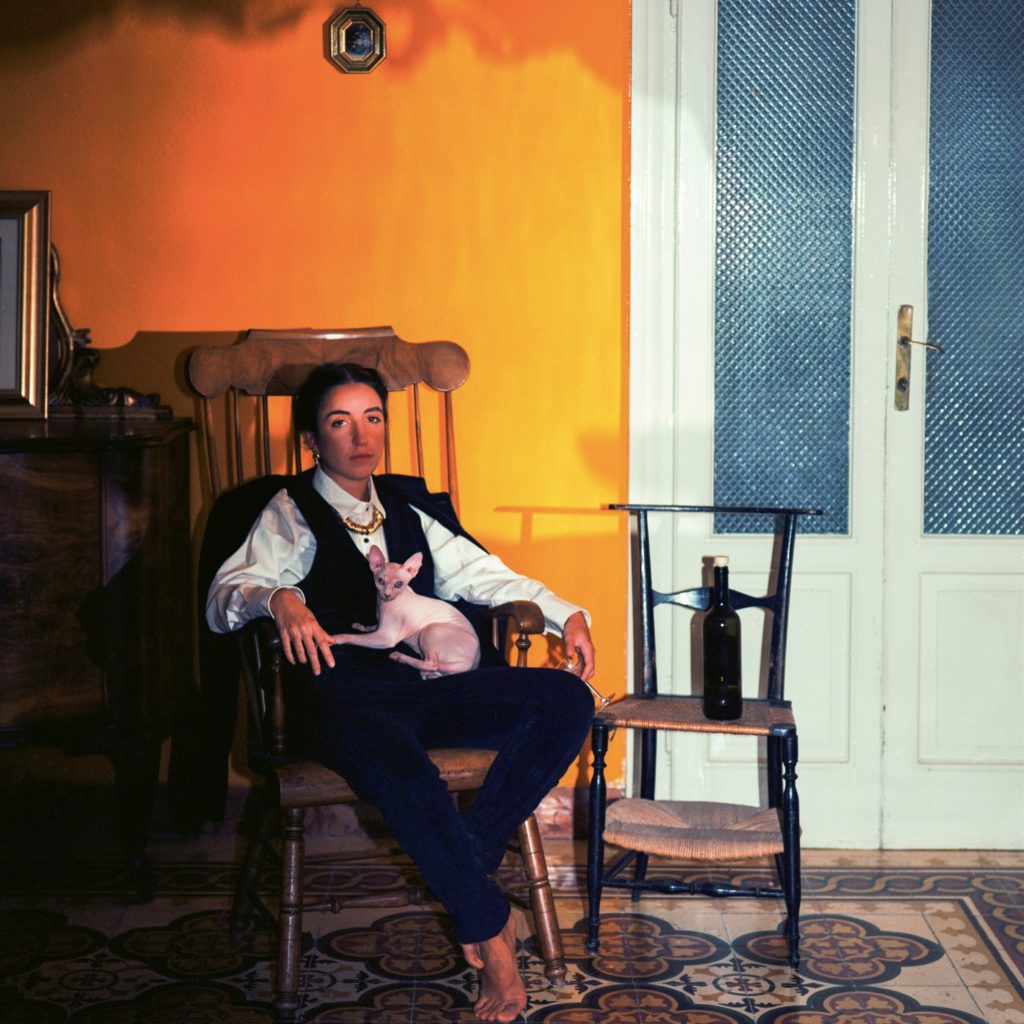




![ZINO VINCI’S ‘FILTHY & DISGUSTING’EP BRINGS YOU TO THE CORE OF THE ARTIST [@ZinoVinci]](https://guap.co/wp-content/uploads/2023/10/Zino-4.jpg)

